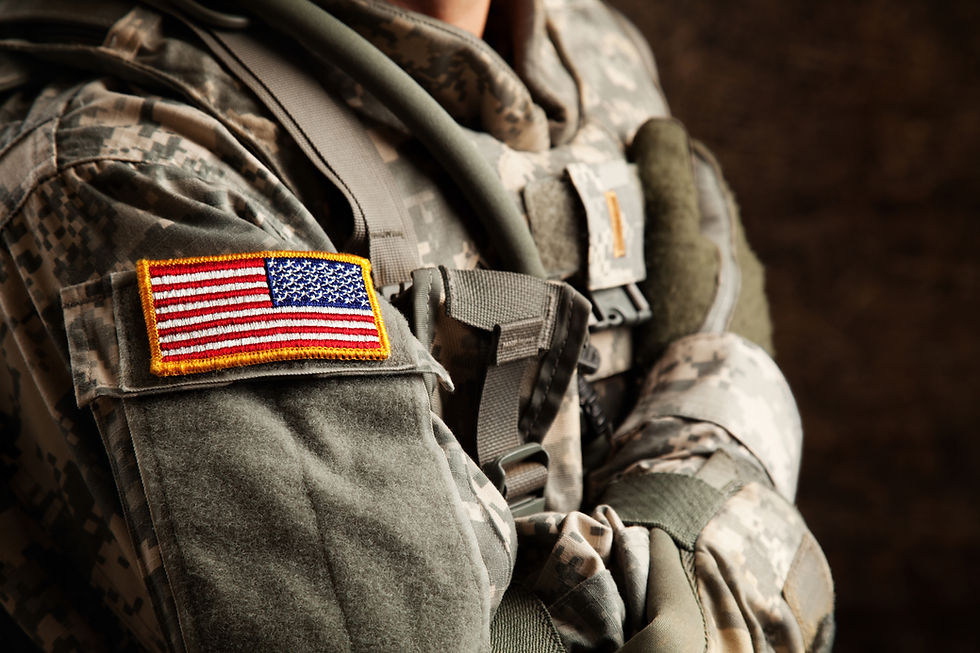Whither NATO?
American foreign policy can sometimes be disastrously misguided, such as the 2003 U.S.-led invasion that deposed Iraqi dictator Saddam Hussein and unleashed a wave of sectarian violence that nearly destroyed the country and its ancient religious minority communities.
Despite Uncle Sam’s blunders, our violent and anarchical world desperately needs the United States. Indeed, American power guarantees the survival of the liberal democracy while also preventing full-scale war between the Great Powers.
NATO Treaty
The North Atlantic Treaty Organization (NATO) was established in 1949 to counter the rising tide of Soviet power in post Second World War Europe. As a charter member of NATO, Canadian participation in the Western alliance has helped forge and maintain the trans-Atlantic link between Europe and North America.
“By this treaty, we are not only seeking to establish freedom from aggression and from the use of force in the North Atlantic community, but we are also actively striving to promote and preserve peace throughout the world,” U.S. President Harry S. Truman said of the NATO Treaty.
Back in 2003, author and former U.S. State Department official Robert Kagan wrote of the tensions between the United States and Europe during the early days of George W. Bush’s presidency. “Even after September 11, when the Europeans offered their very limited military capabilities in the fight in Afghanistan, the United States resisted, fearing that European cooperation was a ruse to tie America down,” Kagan states in his book Of Paradise and Power: American and Europe in The New World Order.
“The Bush administration viewed NATO’s historic decision to aid the United States under Article 5 less as a boon than a booby trap,” Kagan says of the decision to invoke the never before used collective defence clause that treats an attack on one NATO member state as an attack upon all.
“But Americans are powerful enough that they need not fear Europeans, even when bearing gifts,” Kagan offers. If the U.S. could get past its anxiety of being constrained by the European alliance, it could begin to show more understanding for the sensibilities of others, a little more of the generosity of spirit that characterized American foreign policy during the Cold War.”
In Of Power and Paradise, Kagan urges the United States to pay “its respects to multilateralism and the rule of law” while building up “international political capital for those moments when multilateralism is impossible and unilateral action unavoidable.”
In Kagan’s view, it is preferable for the United States to win “material and moral support of friends” than to act unilaterally “in the face of European anxiety and hostility.”
Of course, the United States can and does sometimes go it alone. “The United States has maintained strategic stability in Asia with no help from Europe,” Kagan points out. And he adds that during “various crises in the Middle East and Persian Gulf” European assistance has been nominal at best.
The crux of the trans-Atlantic problem, writes Kagan, is the “inherent moral tension” in America’s role as a superpower and a member of the Western alliance. In other words, the United States must sometimes play by the rules of Realpolitik or power politics “even though in doing so it violates Europe’s postmodern norms.”
Kagan concludes that the United States “must sometimes act unilaterally, not out of a passion for unilateralism but only because, given a weak Europe that has moved beyond power, the United States has no choice but to act unilaterally.”
In fact, the community of nations needs a strong America capable of acting unilaterally, if need be. “Since the end of World War II, it has held a near monopoly of legitimated military power, and it still does today,” Kagan writes in his 2012 book The World America Made.

Importance of American power
In The World America Made, Kagan ponders why the community of nations has been “so accepting of American military power.” And Kagan then proceeds to provide a list of compelling reasons.
First, he contends that many countries “implicitly accept that when America uses force, it is rarely in pursuit of narrow national interests alone but also in defence of principles of an order that other liberal nations share and from which they benefit.”
Second, the “evident reluctance to wield power” and rule others “makes the United States for many a tolerable if often misguided hegemon,” Kagan writes.
Third, because geography sets the United States apart from the rest of the world, Kagan believes that the exercise of American power is viewed less of a threat to the rest of the world. “Asians, Europeans, and the peoples of the Middle East have invariably worried more about what neighbouring powers are up to than about distant American power, despite its far greater strength.”
Fourth, Kagan contends that American power “has been tolerated and even welcomed by many nations around the world,” because “they need it—or at least they feel they may need it in the future.” And he argues that despite their reservations, “America’s allies would not have valued the United States as much were it not capable and willing to use force.”
Kagan concludes that “this general acceptance of American power over the past several decades has been critical to the maintenance of peace among Great Powers.”
European blunder
On Nov. 23, 2002, George W. Bush, then the American president, delivered a speech in Bucharest’s Revolution Square to tens of thousands of people to mark Romania’s admission to NATO. In his memoirs, Bush describes the ascension of Romania to member status in the Western alliance as “a landmark development for a country that just 15 years earlier was a Soviet satellite state and a member of the Warsaw Pact,” which was the Soviet-led counterweight to NATO.
“Romania was not the only young democracy celebrating that day,” Bush writes in 2010’s Decision Points. “I had also cast America’s vote to admit Bulgaria, Estonia, Latvia, Lithuania, Slovakia, and Slovenia into NATO.”
NATO requires states applying for membership to meet “high standards for economic and political openness,” notes Bush. Consequently, “the possibility of membership acts as an incentive for reform.”
In his book, Bush also states that Georgia and Ukraine applied for Membership Action Plans, MAPs, at the 2008 NATO summit in Bucharest. Admission to the alliance requires unanimity, and while Bush supported their applications, German Chancellor Angela Merkel and then French President Nicolas Sarkozy were “skeptical.” Bush reveals that the German and French were concerned about Russian aggression toward Georgia and Ukraine. “They worried NATO could get drawn into a war with Russia,” Bush writes.
However, the American president took a very different view of the strategic situation. He reasoned that “the threat from Russia strengthened the case for extending MAPs to Georgia and Ukraine,” because “Russia would be less likely to engage in aggression if these countries were on a path into NATO.”
Merkel and Sarkozy’s timidity at the 2008 NATO summit proved to be one of the most significant European blunders of the 21st century.
After NATO failed to put the two former Soviet republics on the track to membership, Russia attacked Georgia, sending tanks into the Georgian provinces of South Ossetia and Abkhazia. “I wondered if they would have been as aggressive if NATO had approved Georgia’s MAP application,” Bush says of the Russians’ 2008 invasion.
Similarly, the Putin regime launched a stealth invasion of Ukraine, a former Soviet republic, in 2014, capturing the Crimea Peninsula. Not only did Russia eventually annex Crimea, in clear violation of international law, Moscow continues to provide military equipment and Russian troops in support of pro-Moscow rebels waging a brutal insurgent campaign in Ukraine. Like Russian aggression in Georgia, Russian intervention in Ukraine underscores the logic of Bush’s argument in favour of NATO expansion.

What does this all mean? First, the Europeans don’t always understand the strategic realities of the international system. By deliberately leaving Georgia and Ukraine beyond the protection of NATO, the French and Germans inadvertently gave Moscow the green light to attack its neighbours.
Second, without the United States to back them up, the Europeans would literally be at the mercy of Vladimir Putin’s Russia.
Third, the United States needs to understand that NATO is a vital international institution that serves America’s national interests. Not only does NATO help to deter aggression and prevent a destructive continental war that would wreak havoc on America’s economy, it provides a political forum for the expression of the American worldview in a multilateral setting that legitimizes the exercise of American power.
However, the question remains, does U.S. President Donald Trump understand the realities the international system and America’s place in it?
Trump has never viewed NATO as an indispensable alliance. For example, during the 2016 presidential primaries and election campaign, Trump declared that NATO should be transformed into a terrorist fighting organization, or else it should be scrapped. Nor has Trump demonstrated any concern about Russia’s 2014 invasion of Ukraine and subsequent annexation of the Crimea Peninsula.
If the Americans and Europeans cannot come together in the face of Russian aggression, the world will ask the big question: whither NATO?
Geoffrey P. Johnston is an independent Canadian journalist.
Follow Geoffrey P. Johnston on Twitter @GeoffyPJohnston




























